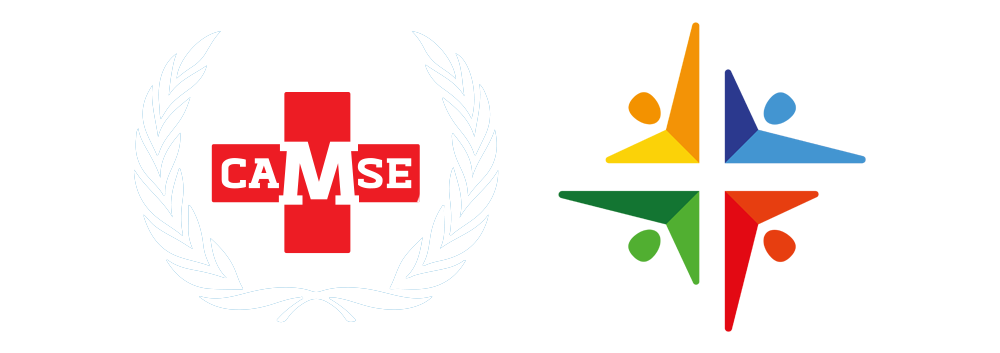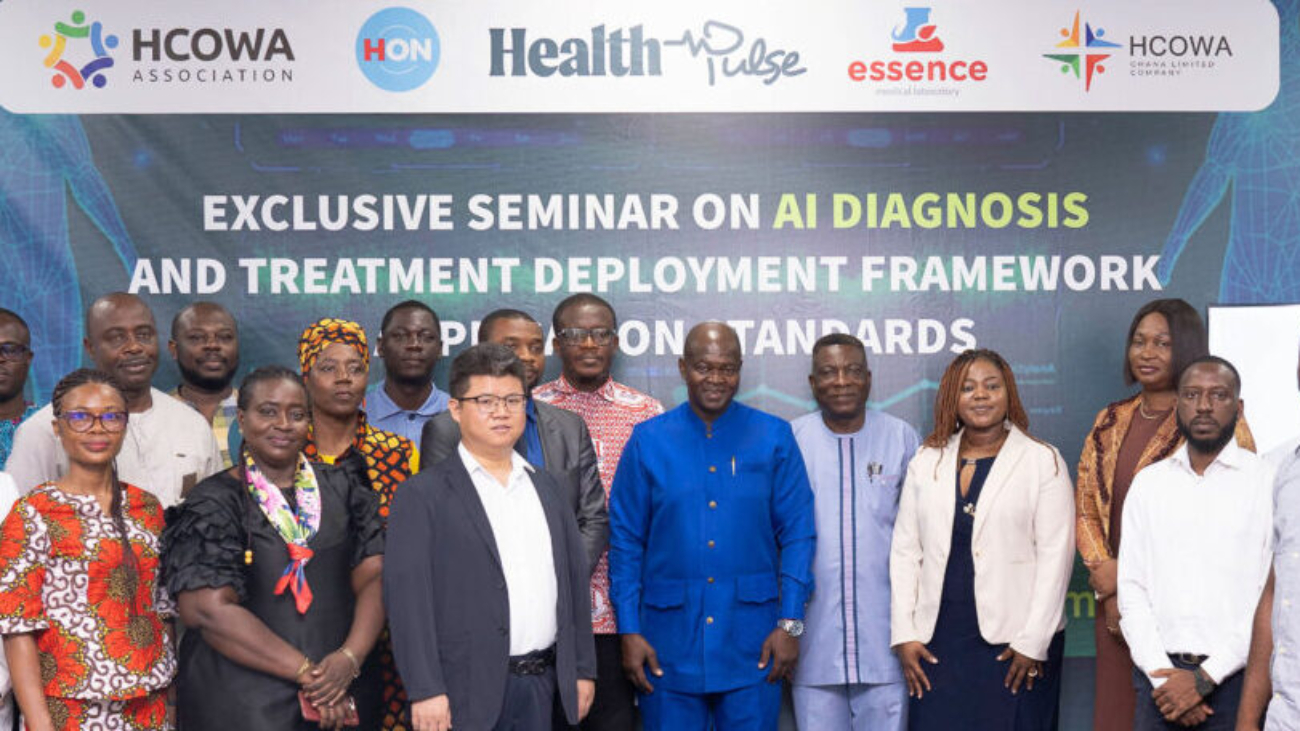The Director-General of the Ghana Health Service (GHS), Professor Samuel Kaba Akoriyea, has commended the Health Community of West Africa (HCOWA) Association for its groundbreaking efforts in championing the integration of Artificial Intelligence (AI) into Ghana’s healthcare system.
“Your bold mission and key involvement in launching the HCOWA AI Treatment Project is one that the Ghana Health Service values greatly. AI is transforming the global healthcare landscape, and Ghana must not be left behind,” he stated.

He made these remarks while speaking at the seminar on AI Diagnosis and Treatment Deployment Framework and Application Standards, held in Accra under the theme “Advancing AI Diagnosis and Treatment: Building a Framework for Healthcare Transformation.”
Professor Akoriyea outlined three transformative AI-driven strategies that HCOWA aims to implement within the healthcare sector.
“The first, he explained, is the establishment of AI departments in hospitals, where AI-integrated systems will assist medical professionals in making more accurate diagnoses, reducing human error, and improving efficiency.
“The second is leveraging AI and big data analytics to enhance national disease control, allowing health authorities to track disease patterns, predict outbreaks, and strengthen public health responses.
“The third is the development of an AI-powered medical supply chain system to streamline hospital logistics, ensuring that essential medicines and medical equipment remain in steady supply,” the Director-General said.
“These three pillars of AI integration will work together to enhance Ghana’s healthcare system, improve patient outcomes, and ensure that we stay ahead with faster diagnostic systems, better treatment options, and efficient medical supply management,” he further explained.
However, he also cautioned that while AI presents immense opportunities, its deployment must be handled with care.
“Ghana Health Service is designated as a Critical Information Infrastructure (CII), meaning that disruptions, vulnerabilities, or breaches in our health systems can have severe consequences on national security. While AI offers immense benefits in diagnostics and treatment deployment, it also introduces risks to data privacy, cybersecurity, and ethical use,” he warned.
He assured participants that GHS is taking proactive measures to ensure that AI adoption in healthcare aligns with the Digital Health Strategy (2023-2027) and the Information Security Policy (ISP) 2025, which emphasize strict security, privacy, and ethical considerations.
The seminar saw the participation of healthcare professionals, policymakers, and AI experts from across Ghana and beyond. Delegates from China’s cities of Changsha and Chengdu joined the discussion, along with medical experts from Togo. The event provided a platform for knowledge-sharing on AI’s potential to revolutionize healthcare, with experts demonstrating how AI can enhance diagnostic accuracy and patient care.
A key highlight of the seminar was a presentation by MEDCONN Diagnostics, a company specializing in research and development, manufacturing, and sales of in-vitro diagnostic products. The presentation shed light on the latest innovations in AI-powered diagnostics, showcasing how these technologies can enhance medical imaging and streamline disease detection.
Dr. Marion Okoh-Owusu, Director of the Family Health Division at GHS, also stressed the need for AI in maternal and child healthcare, explaining that AI-powered systems could improve early detection of complications, leading to faster interventions and better survival rates. “Child and maternal health must be at the center of AI adoption in Ghana. We need technologies that enhance early diagnosis, predict complications, and help reduce mortality rates,” she noted.
Adding to the discussion, the President of the Private Health Facilities Association of Ghana, Dr. Kwame Buabeng-Frimpong, emphasized that private hospitals are eager to embrace AI-driven solutions. “There is a growing demand among hospitals for AI departments to support faster diagnoses, improve reporting accuracy, and enhance patient outcomes. AI has the potential to transform our healthcare system, and we must act now rather than later,” he stated.
At the close of the seminar, HCOWA Association reaffirmed its commitment to partnering with the Ghana Health Service to push forward AI adoption in healthcare. The association emphasized that AI-driven innovation is key to transforming healthcare delivery not only in Ghana but across the entire West African sub-region.
“We are dedicated to championing this cause and ensuring that AI becomes an integral part of medical practice in our hospitals. This partnership with GHS will help accelerate the pace of healthcare transformation in Ghana and beyond,” Prince Dogbey, Deputy to the President of HCOWA Association, stated.
As AI continues to reshape the future of medicine worldwide, Ghana is taking proactive steps to integrate this technology responsibly, balancing innovation with security, ethics, and efficiency. The collaboration between GHS and HCOWA marks a significant milestone in the country’s journey toward a smarter, technology-driven healthcare system.


